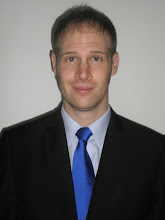 "Actually James W. Rouse and Morton Hoppenfeld got most of the public credit for the efforts. And that never bothered me. I knew and that Rouse said many times in public, "without Bill Finley, there would be no Columbia." During the high-speed pre-opening period 1965-1967, I had my fingers on over 100 projects in Columbia. I was good at that."
"Actually James W. Rouse and Morton Hoppenfeld got most of the public credit for the efforts. And that never bothered me. I knew and that Rouse said many times in public, "without Bill Finley, there would be no Columbia." During the high-speed pre-opening period 1965-1967, I had my fingers on over 100 projects in Columbia. I was good at that."Finley was a World War II bomber pilot at age 20, completing 35 missions over German airspace. By June of 1951, Finley had created a degree in city planning and was the first person in the western United States to receive a BA and MCP for it at the University of California Berkeley. He was then recruited to be the first director of planning for the town of Richmond, CA.
Five years later, Finley had planned a new town in West Virginia and taught two semesters at Penn State. At 32, Finley was picked to head the National Capital Planning Commission where he would work with Morton Hoppenfeld and Robert Tennenbaum. Finley is perhaps best known for his work on Columbia as the manager of the Rouse Company planning workgroup.
Here is the best of my interview with Bill Finley:
Q: In retrospect, how does Columbia compare to any job prior or since?
A: "Working with Jim Rouse, Morton Hoppenfeld and Robert Tennenbaum and dozens of other creative people and having the support and funds to plan and build the beginnings of Columbia has been the professional highlight of my life. Rouse's idealism coupled with Morton Hoppenfeld's design creativity allowed us to put ideas into reality. I felt that the only planning worthwhile was that which ended up being built to serve people?
Q: Are there any memorable (specific) planning meetings you can recall and what made them memorable?
A: "Only the first night when every guest felt obligated to pour cold water on the idea of trying to plan for the 'perfect' city. I reacted strongly to their negativism and Jim went home depressed. Thereafter, everyone got the idea that we were serious in trying to get their positive input, with some exceptions."
Q: How did Foster City, CA influence the planning of Columbia?
A: "We learned from Foster City, CA that letting a new town become a municipality could result in the first few settlers overturning the long-range plan. It was a very important reason for keeping Columbia unincorporated and subject to county-wide rule. We guessed rightly that in a few years, our citizens would all but control the county. It was a gamble that paid off."
Q: Describe the impact of the republican controlled county government or Howard Research & Development's plan and the development process?
A: "The three man county commission were all very conservative. They had never even heard of a new town. They were not world travelers. The county attorney had to walk a fine line between his bosses and our development machine and the fact that we had paid cash for 13,000 +/- acres and weren't going away. Eventually, he was cooperative, I know that the county board members would have voted 2-1 to turn us down. It was a close call!"
Q: What were some of the most memorable concerns/pet peeves by the local neighborhood/homeowners associations?
A: "I actually didn't do much in dealing with the existing subdivision folks. We did have to answer the key questions about 'negros' and higher taxes. After that they were worried about property values and that no apartments would be built near them."


No comments:
Post a Comment